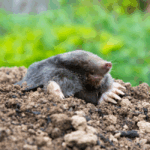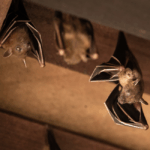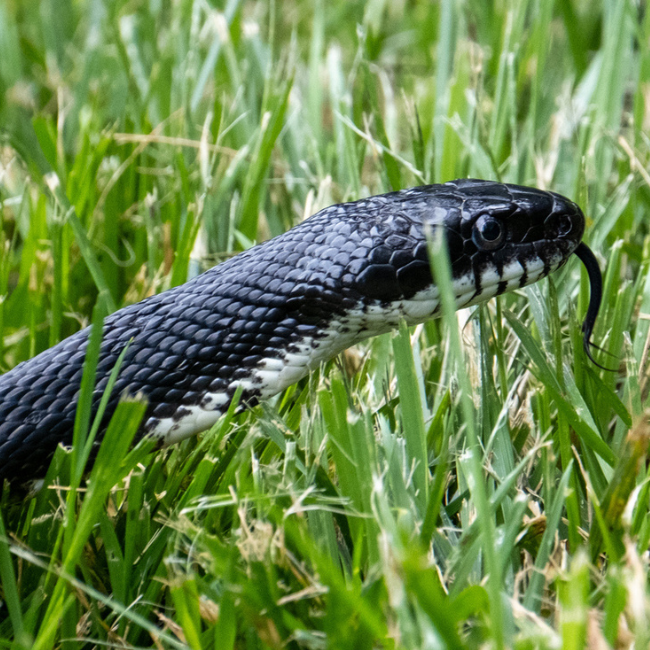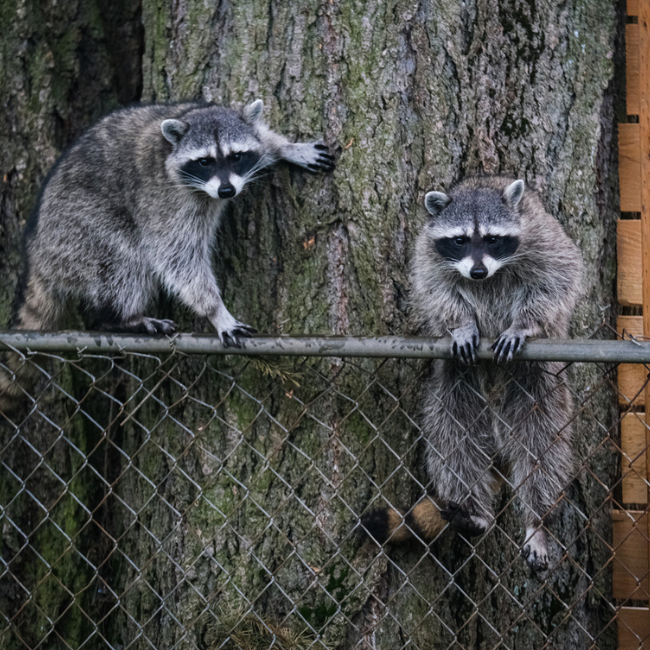
Mole Damage Identification and Removal in Myrtle Beach
September 15, 2025
Attic Wildlife Removal: What Critters Move In for Winter
October 10, 2025Wildlife and pets often cross paths, especially in backyards or wooded neighborhoods. While wild animals might seem harmless from a distance, they can carry serious illnesses that put your pets at risk. Understanding common wildlife diseases and how they spread can help you keep your animals safe and healthy all year long.
Common Wildlife Diseases That Affect Pets
Rabies
Rabies is one of the most well-known and dangerous wildlife diseases. It spreads through the saliva of infected animals like raccoons, foxes, bats and skunks. A single bite can infect your pet. Rabies affects the brain and nervous system, leading to severe symptoms and death if not treated quickly. Keeping your pet’s rabies vaccinations current is one of the most important steps you can take to protect them.
Leptospirosis
Leptospirosis is a bacterial infection often spread through water or soil contaminated by animal urine, especially from raccoons, rats or opossums. Pets can get sick by drinking from puddles or swimming in contaminated water. Symptoms can include vomiting, fever and muscle pain. It can also spread to humans, so quick veterinary care is vital.
Distemper
Distemper affects both wild and domestic animals, including raccoons, foxes and dogs. It attacks the respiratory, digestive and nervous systems. Signs include coughing, nasal discharge and seizures. Because the virus spreads through direct contact or shared food and water sources, even curious pets that wander near wildlife are at risk.
Mange
Mange is caused by mites that burrow into the skin. Coyotes, foxes, and raccoons often carry it, and pets can pick it up through close contact or contaminated bedding. Infected animals lose fur and develop itchy, scaly skin. While mange is treatable, it can cause serious discomfort for your pet.
Parasites
Fleas, ticks and worms are some of the most common parasites that wildlife spread. Deer, raccoons and squirrels often carry these pests, which can quickly latch onto pets that spend time outside. These parasites cause itching, anemia and in some cases, more serious diseases such as Lyme disease. Using year-round prevention keeps your pets better protected.
How to Keep Your Pets Safe
Prevention is key when it comes to protecting your pets from wildlife diseases. Keep your yard clean and free of food sources that attract wild animals. Don’t leave pet food outside, and make sure trash cans have secure lids. Always supervise pets outdoors, especially near wooded areas or water sources.
Regular vet visits and up-to-date care gives your pet strong protection. If your pet comes in contact with wildlife or shows signs of illness, call your vet right away. Quick care can make all the difference.
Stay Safe with Professional Wildlife Control
Keeping wildlife at a safe distance protects both your family and your pets. If you notice raccoons, foxes, bats or other animals around your property, don’t try to handle them yourself. Call The Snake Chaser to safely and humanely remove unwanted wildlife. Our experts know how to protect your home and family while keeping local wildlife populations healthy and in balance.
FAQs
1. What diseases can pets get from wild animals?
Pets can catch several illnesses from wild animals, including rabies, leptospirosis, distemper, mange and parasites like fleas and ticks. These diseases spread through bites, contact with contaminated soil or water or exposure to infected wildlife. Keeping vaccinations up to date, using parasite prevention, and avoiding contact with wildlife helps protect pets from these threats.
2. How can I tell if my dog got sick from wildlife?
If your dog has been near wild animals and starts showing signs like fever, vomiting, coughing, itching or sudden behavior changes, they might have caught something. Always contact your vet right away if you notice unusual symptoms. Quick care can prevent serious complications and stop the spread of infection.
3. How do I protect my pets from wildlife diseases?
To protect pets from wildlife diseases, keep their vaccinations current and use parasite prevention year-round. Supervise them outdoors, especially near wooded areas or water sources. Don’t leave food or water outside, since that attracts wildlife. If you spot raccoons, foxes or other animals near your property, contact The Snake Chaser to remove them safely.




